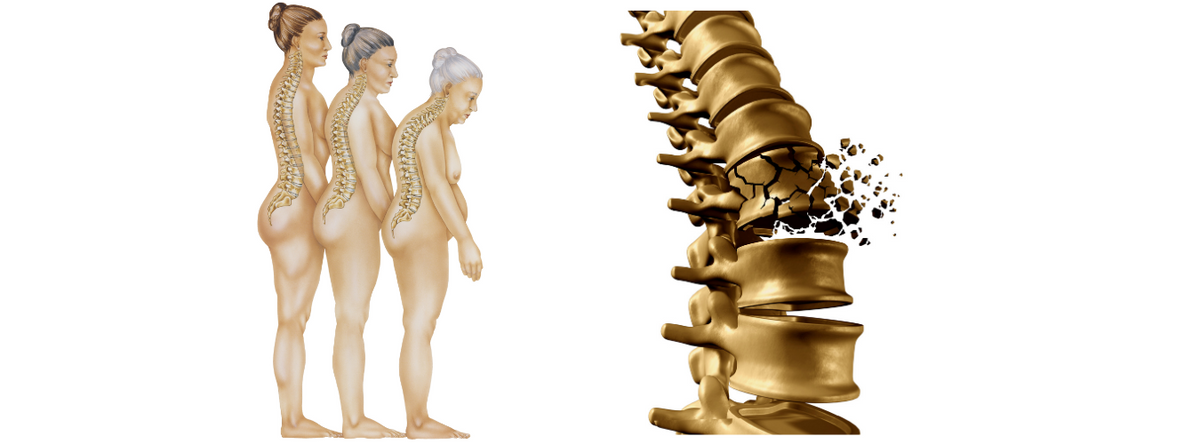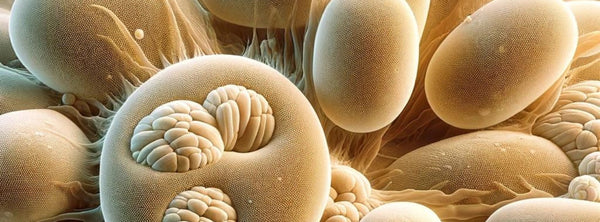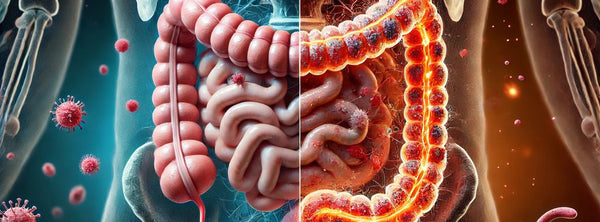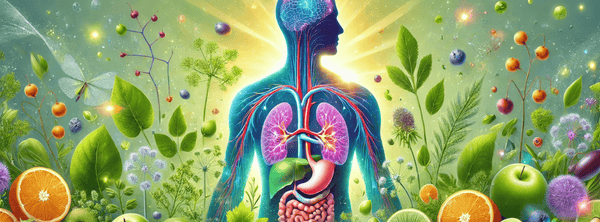
Our Skeleton Is With Us For Life - Make No Bones About It
One of the good things about being alive in the 21st century is that we can live longer and experience more great adventures throughout life. The downside of living longer is that body parts start to wear and breakdown, especially if we neglect to care for them when they are healthy.
Our bones are an excellent example of this, while we young, fit and healthy, not much thought is given to our bones and their long-term health. Generally, we think about our bones when they become sore or fracture, but poor bone health can lead to Osteopenia (an inability to make new bone) and Osteoporosis (a condition in which bones lose density and become brittle and fracture)
Osteoporosis, Osteopenia and Bone Metabolism
Bones are living matter that undergo constant breaking down and rebuilding throughout our life. Remodelling of bone involves specific cells; osteoclasts to reabsorb bone and osteoblasts that rebuild bones. Breaking down and rebuilding bones is essential for the repair and the long-term health and strength of all bones throughout the body. Our bones are mainly composed of a mineral matrix including calcium, phosphorus and magnesium and an organic matrix. The organic matrix comprises 90% collagen, predominantly type 1 collagen, mainly found in Hydrolysed Collagen Peptides. Improper bone remodelling, mineral deficiencies and an inadequate organic matrix can lead to Osteopenia or Osteoporosis.
Osteopenia is a condition in which the body cannot make new bone as quickly as it breaks it down (improper bone remodelling) -resulting in bones becoming weak. This may or may not lead to Osteoporosis.
Osteoporosis is characterised by a reduction in bone mineral density which causes the bones to become weak and brittle, increasing their susceptibility to fracture. Osteoporosis is a severe condition that can cause fractures from merely bending over, coughing or sneezing. The most common areas for bone breaks are the hip, wrist and spine. Osteoporosis occurs mainly in older adults and postmenopausal women but can be found in younger adults and teenagers during growth spurts, especially if they are deficient in bone nutrients or have a poor ability to make collagen.
Why Is Collagen Protein Important For Bone Health?
Collagen is the most abundant protein in the human body, making up 30% of the body's protein and 90% of bone organic matrix. The organic matrix plays a vital role in providing flexibility and strength to the bone, and is important in keeping calcium and other minerals within bones.
Studies have shown that 10g of Hydrolysed Collagen Peptides per day stimulates osteoblast proliferation (making new bone) and collagen gene expression (building the organic matrix) while inhibiting bone resorption by osteoclasts (breaking bone down). The combination of these effects results in increased mineral density and physical strength of bones.
Collagen peptides 5g per day for 12 months significantly improved bone mineral density and markers in postmenopausal women.
The combination of collagen peptides and calcium in children showed significantly enhanced bone remodelling at crucial growth and development stages.
We hope you found this blog 'Collagen The Missing Link For Healthy Bones' helpful, and if you did, please leave a comment or share on social media.
Thanks and have a great day!
The information provided in this blog 'Collagen The Missing Link For Healthy Bones' is general and intended for only educational purposes. We make no claims to diagnose, treat, prevent, alleviate or cure illnesses or diseases with any information or product stated. With any health issue, we suggest you consult your healthcare professional before undertaking any health treatment.
References:
- Martin-Bautista E, Martin-Matillas M, Martin-Lagos JA, Miranda-Leon MT, Muñoz-Torres M, Ruiz-Requena E, Rivero M, Quer J, Puigdueta I, Campoy C. A nutritional intervention study with hydrolyzed collagen in pre-pubertal spanish children: influence on bone modeling biomarkers. J Pediatr Endocrinol Metab. 2011;24(3-4):147-53. doi: 10.1515/jpem.2011.009. PMID: 21648282.
- König D, Oesser S, Scharla S, Zdzieblik D, Gollhofer A. Specific Collagen Peptides Improve Bone Mineral Density and Bone Markers in Postmenopausal Women-A Randomized Controlled Study. Nutrients. 2018;10(1):97. Published 2018 Jan 16. doi:10.3390/nu10010097.
- Sato T, Foged NT, Delaissé JM. The migration of purified osteoclasts through collagen is inhibited by matrix metalloproteinase inhibitors. J Bone Miner Res. 1998 Jan;13(1):59-66. doi: 10.1359/jbmr.1998.13.1.59. PMID: 9443791.
- Kim HK, Kim MG, Leem KH. Osteogenic activity of collagen peptide via ERK/MAPK pathway mediated boosting of collagen synthesis and its therapeutic efficacy in osteoporotic bone by back-scattered electron imaging and microarchitecture analysis. Molecules. 2013;18(12):15474-15489. Published 2013 Dec 12. doi:10.3390/molecules181215474.
- Liu J, Zhang B, Song S, Ma M, Si S, Wang Y, Xu B, Feng K, Wu J, Guo Y. Bovine collagen peptides compounds promote the proliferation and differentiation of MC3T3-E1 pre-osteoblasts. PLoS One. 2014 Jun 13;9(6):e99920. doi: 10.1371/journal.pone.0099920. PMID: 24926875; PMCID: PMC4057461.




